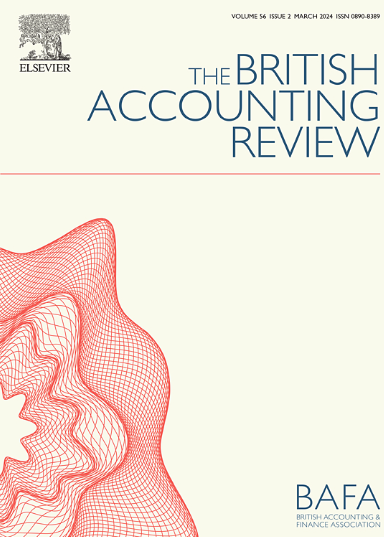Product market shock, stakeholder relationships, and trade credit
IF 9.4
3区 管理学
Q1 BUSINESS, FINANCE
引用次数: 0
Abstract
The COVID-19 pandemic resulted in an extremely rare instance of a shock to global product markets. Using quarterly data for a sample of 7397 firms from 54 countries over the period 2017–2020, we study the causal impact of this shock on trade credit. Employing a difference-in-difference analysis, we find that, in contrast to findings in the literature on financial market shocks, low-credit quality firms are credit-rationed by their suppliers during a shock to product markets and that for low-credit quality firms, there is no substitution of trade credit with financial credit. Importantly, however, our analysis shows that low-credit quality firms with better stakeholder relations are able to obtain more trade credit than those with weaker stakeholder relations. Our results are robust to alternative definitions of key variables, alternative methodologies that address endogeneity concerns, a placebo test, stage of market development, and various levels of controls for unobserved heterogeneity. We show that trade credit is conditional on product market conditions and is not always a generous substitute for financial credit. However, maintaining good relations with stakeholders serves as an antidote to the adverse effect of product market shocks on trade credit.
产品市场冲击、利益相关者关系和贸易信贷
COVID-19 大流行对全球产品市场造成了极为罕见的冲击。利用 54 个国家 7397 家样本企业在 2017-2020 年期间的季度数据,我们研究了这一冲击对贸易信贷的因果影响。通过差分分析,我们发现,与有关金融市场冲击的文献研究结果不同的是,在产品市场受到冲击时,低信用质量的企业会受到供应商的信用限制,而且对于低信用质量的企业来说,贸易信贷不会被金融信贷所替代。但重要的是,我们的分析表明,与利益相关者关系较弱的企业相比,利益相关者关系较好的低信用等级企业能够获得更多的贸易信贷。对于关键变量的其他定义、解决内生性问题的其他方法、安慰剂测试、市场发展阶段以及不同程度的未观察异质性控制,我们的结果都是稳健的。我们的研究表明,贸易信贷取决于产品市场条件,并不总是金融信贷的理想替代品。然而,与利益相关者保持良好的关系可以缓解产品市场冲击对贸易信贷的不利影响。
本文章由计算机程序翻译,如有差异,请以英文原文为准。
求助全文
约1分钟内获得全文
求助全文
来源期刊

British Accounting Review
BUSINESS, FINANCE-
CiteScore
8.60
自引率
3.90%
发文量
39
审稿时长
76 days
期刊介绍:
The British Accounting Review*is pleased to publish original scholarly papers across the whole spectrum of accounting and finance. The journal is eclectic and pluralistic and contributions are welcomed across a wide range of research methodologies (e.g. analytical, archival, experimental, survey and qualitative case methods) and topics (e.g. financial accounting, management accounting, finance and financial management, auditing, public sector accounting, social and environmental accounting; accounting education and accounting history), evidence from UK and non-UK sources are equally acceptable.
 求助内容:
求助内容: 应助结果提醒方式:
应助结果提醒方式:


